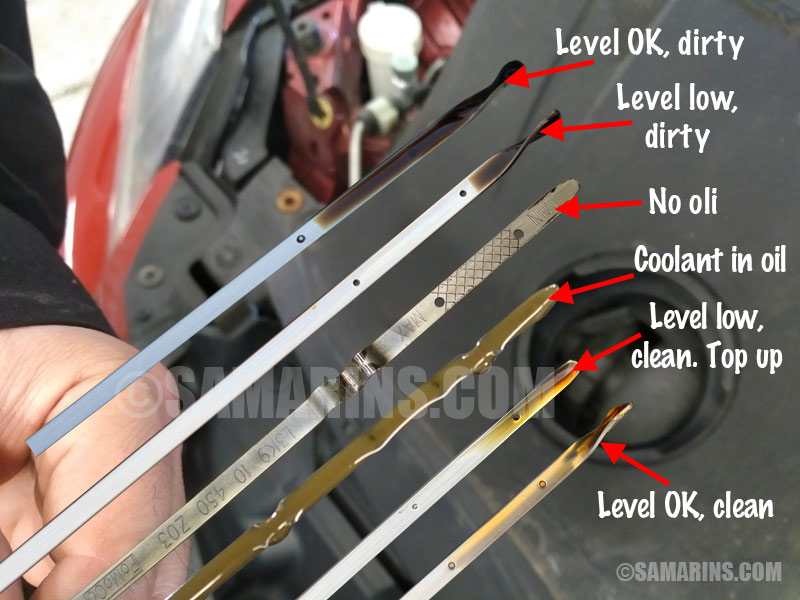Have you ever wondered if your car’s oil is running low? If so, you’re not alone.
Many drivers often overlook this crucial aspect of car maintenance, and doing so can lead to serious engine troubles. Imagine cruising down the highway and suddenly hearing strange noises coming from your engine. Sounds scary, right? That’s your car’s way of crying out for help.
Low oil levels can cause your engine to make unusual noises, which might sound like knocking or ticking. These sounds are your car’s way of signaling that it needs attention. Ignoring them can result in costly repairs or even engine failure. So, how can you tell if your car oil is low before it gets to that point? We will guide you through the signs your car gives when it needs oil. We’ll also explain the noises to listen for and how to check your oil levels like a pro. Keep reading to learn how to keep your car running smoothly and avoid those dreaded repair bills.

Credit: www.samarins.com
What Noise Does A Car Make When It Needs Oil
A grinding or ticking noise might signal low oil levels in your car. These sounds often come from the engine. Regular checks can prevent damage and ensure smooth performance.
Cars communicate issues through sounds. Recognizing these sounds is key to car health. Low oil levels can lead to specific noises. Understanding these can prevent serious damage. Knocking Noise A knocking sound often signals oil issues. This noise arises when metal parts collide due to insufficient lubrication.
It might start softly and grow louder. Ignoring this can harm the engine. Ticking Sound Sometimes, you’ll hear a ticking sound. This usually comes from the engine’s valves. They make this noise when oil is too low to cover them.
It’s a sign that oil levels should be checked. Rumbling Noise A rumbling noise can also indicate low oil. This sound often comes from the engine’s crankshaft. Lack of oil leads to increased friction and this unsettling sound. Addressing it quickly is important.
Why These Noises Occur Understanding why these noises occur is crucial. Here’s a brief rundown: – Lack of lubrication: Low oil means parts don’t glide smoothly. – Increased friction: No oil leads to metal grinding against metal. – Engine strain: The engine works harder without proper lubrication.
Immediate Actions If your car makes these noises, act promptly. Here are steps to follow: – Check oil level: Look at the dipstick to assess the situation. – Add oil if needed: Top up the oil to the recommended level.
– Visit a mechanic: If noises persist, seek professional help.

Credit: www.hondaofbaycounty.com
Conclusion
Low oil levels can cause serious engine problems. Regularly check your car’s oil. Listen for unusual noises. Grinding or knocking sounds might signal low oil. Keep an eye on the dashboard warning lights. Frequent oil checks prevent damage. Maintain your car’s health.
Ensure smooth performance by monitoring oil levels often. Your car’s longevity depends on proper oil maintenance. Simple checks save costly repairs. Prioritize regular oil inspections for peace of mind. Avoid unexpected breakdowns. Protect your vehicle with consistent care. Always be aware of oil levels.
Your engine deserves attention.
